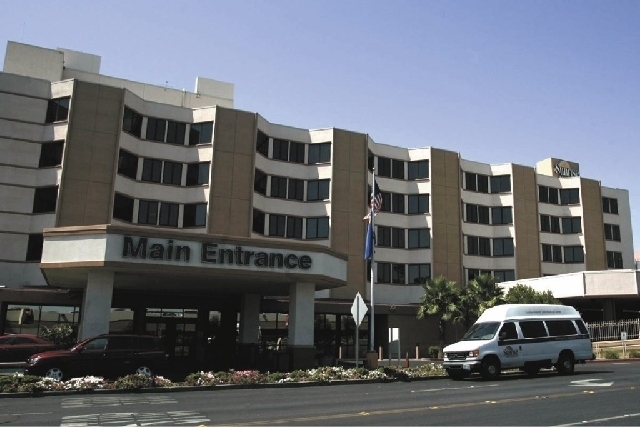Lawsuits filed against Sunrise Hospital and Medical Center in child deaths

Sunrise Hospital and Medical Center and its director of pharmacy, Wilson Chu, purchased a contaminated cardiac drug from an unaccredited compounding pharmacy that ultimately led to the 2012 deaths of two Las Vegas children, two lawsuits filed in U.S. District Court allege.
They did so, according to the suit filed last week, largely because the pharmacy offered cheaper prices.
The suit also contends Sunrise did not follow recognized standards to confirm the drug’s safety.
Filed on behalf of the families of 6-year-old Zacharie Nicholas Rood-Sucharzewski and 4-year-old Ari Thomas Gomez, the lawsuits charge that Sunrise bought contaminated cardioplegia solution in bulk from the New England Compounding Center (NECC), an unaccredited compounding pharmacy responsible last year for an outbreak of fungal meningitis in the United States that the federal Centers for Disease Control and Prevention says has caused 64 deaths. The two youngsters underwent open heart surgery at Sunrise.
John Thornton, a California lawyer handling the cases along with attorney Peter Wetherall of Las Vegas, charged: “Hospitals that chose to outsource their drugs from NECC would have discovered irregularities had they followed recognized standards to confirm sterility.”
Spokesman Brendan Bussmann explained Sunrise’s position:
“As soon as Sunrise Hospital and Medical Center learned some New England Compounding Center products had been recalled, we immediately pulled all NECC products from our inventory. However, a small number of our patients had already received doses of medication from NECC. To the best of our knowledge, the medications have not currently been confirmed as causing infections and authorities believe the risk is very low. Because of Sunrise’s commitment to quality care and the safety of its patients, we notified these patients out of an abundance of caution as advised by U.S. Food and Drug Administration.”
Both Katrina Eldeth, Ari’s mother, and Alan Zucharzewski, Zacharie’s father, learned in letters dated Oct. 18, 2012 from Sunrise that the drug given their sons on the days of their 2012 operations had been recalled. In October 2012, the FDA issued a warning that cardioplegia may be contaminated.
Both lawsuits allege that the boys developed serious infections from the cardioplegia solution and that they spent more than a month in critical condition before dying.
Neither parent agreed to be interviewed.
Until now, the primary focus of lawsuits against NECC nationwide has been on contaminated steroid injections doctors administer for lower back pain. According to the CDC, 750 people from 20 states are now being treated for infections from those tainted spinal injections, but none of them are from Nevada. NECC is also the target of state and federal criminal probes.
The lawsuits filed on behalf of the young boys, which also name the owners of NECC as defendants, are the first relating to injuries from a contaminated heart drug.
Cardioplegia solution is used during complicated heart surgeries to suspend cardiac activity. The lawsuit states that the solution used during the boys’ operations was recalled by NECC after authorities discovered widespread bacterial and fungal contamination throughout NECC’s facilities.
Sunrise should have known the danger of using drugs that were not from FDA-approved manufacturers, the lawsuits state. According to the suits, “Cheaper prices … was one of the factors prompting” Sunrise to purchase NECC’s cardioplegia solution.
Chu and Sunrise also didn’t take investigative steps necessary to determine if NECC could provide a safe drug for open heart surgery procedures, the lawsuit states.
The suits also charge that Sunrise knowingly submitted false names in lieu of valid, actual patient names on NECC’s prescription order forms in violation of Massachusetts law — a tactic, the suit alleges, that allowed Sunrise to “illegally obtain compounded drugs from NECC in bulk.”
According to the suit, Sunrise and Chu are guilty of a violation of Nevada’s public health and safety prescription fraud law, which provides that any person “who knowingly or intentionally obtains” a drug through “misrepresentation” is guilty of a category E felony.












